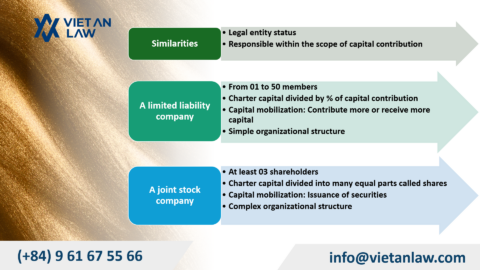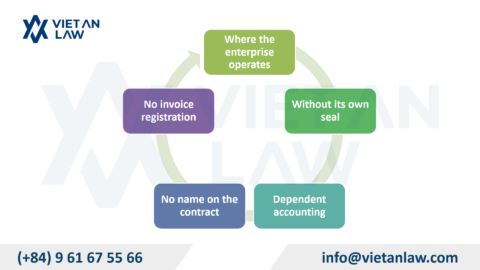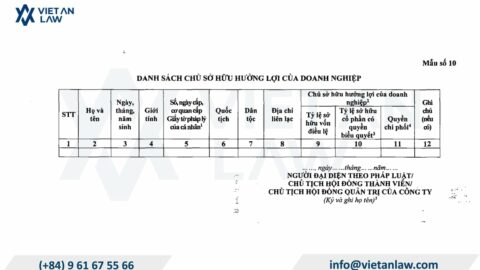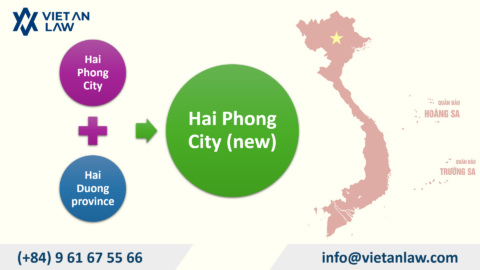A branch office constitutes an integral component of a business enterprise’s operational activities, facilitating the expansion of its operational scope and enabling more effective customer outreach. However, a significant legal inquiry arises as to whether a branch possesses legal status. This question holds substantial importance, as legal status determines the capacity to independently participate in legal relations and bear liability for obligations arising during its operations. The subsequent article by Viet An Law will furnish the requisite information concerning this matter.
Table of contents
Pursuant to Clause 1, Article 44 of the Law on Enterprises 2020, a branch is a dependent unit of an enterprise, tasked with performing all or part of the enterprise’s functions, inclusive one of the function of representation by authorization. The business lines of a branch must be consistent with the business lines of the enterprise.
A legal entity is understood to be an organization possessing a distinct legal status. Such an organization may participate in economic, political, and social activities, among others, in accordance with regulations and is held accountable before the law.
An organization possessing legal entity status is one recognized by the State to operate independently and be held liable before the law. An organization with legal entity status possesses the full rights and obligations of a legal entity as prescribed by law.
Pursuant to the provisions of Article 74 of the Civil Code 2015 concerning the conditions for an organization to be recognized as a legal status, as follows:
“1. An organization shall be recognized as a legal status when it fully meets the following conditions:
a) It is established in accordance with the provisions of this Code and other relevant laws;
b) It has an organizational structure as prescribed in Article 83 of this Code;
c) It possesses assets independent from individuals, other legal statuses, and bears its own liability with its own assets;
d) It participates in legal relations in its own name independently.
…2. Every individual and legal status has the right to establish a legal status, except where otherwise provided by law.”
Additionally, as clause 1, article 44 of the Law on Enterprises 2020 stipulates that a branch is a dependent unit of an enterprise, tasked with performing all or part of the enterprise’s functions, including the function of representation under authorization. The business lines of the branch must be consistent with the business lines of the enterprise.
Based on the aforementioned legal grounds, a company’s branch remains subordinate to the enterprise’s head office and is represented in the form of authorization. Consequently, a company’s branch does not possess legal status as it does not directly participate in legal relations in an independent capacity as prescribed by law.
The registration of branch operations is governed by Article 45 of the Law on Enterprises 2020, which stipulates as follows:
Pursuant to Article 40 of the Law on Enterprises 2020 concerning branch names, the following provisions shall apply:
Pursuant to the provisions of clause 2, article 43 of the Law on Enterprises 2020:
“An enterprise shall decide on the type, quantity, form, and content of the seals of the enterprise, its branches, representative offices, and other units.”
Furthermore, there is currently no legal normative document mandating that a branch must possess its own separate seal.
Therefore, during the course of its operations, a branch is not legally obligated to have its own separate seal. However, in practice, the majority of enterprises’ branches currently utilize their own separate seals to facilitate the operations of the enterprise in general and the branch in particular.
As a dependent unit of an enterprise lacking legal status, a branch cannot execute contracts in its own name. However, the legal representative of the company may issue a power of attorney to the head of the branch to act as an authorized representative of the company and execute contracts on behalf of the company.
Clause 5, Article 84 of the Civil Code 2015 stipulates:
“The head of a branch or representative office shall perform duties under the authorization of the legal status within the scope and duration of the authorization.”
Accordingly, the head of a branch or representative office does not inherently possess the authority to represent the branch in entering into contracts; such authority only arises upon the issuance of a power of attorney by the legal representative of the company. The scope and duration of the authorization shall be determined by the legal representative of the company.
The foregoing constitutes the latest update from Viet An Law concerning whether a branch in Vietnam have legal status. Clients with related inquiries or requiring assistance are kindly requested to contact Viet An Law for optimal support!




